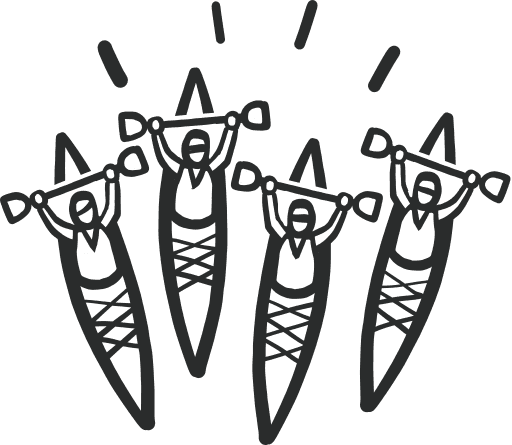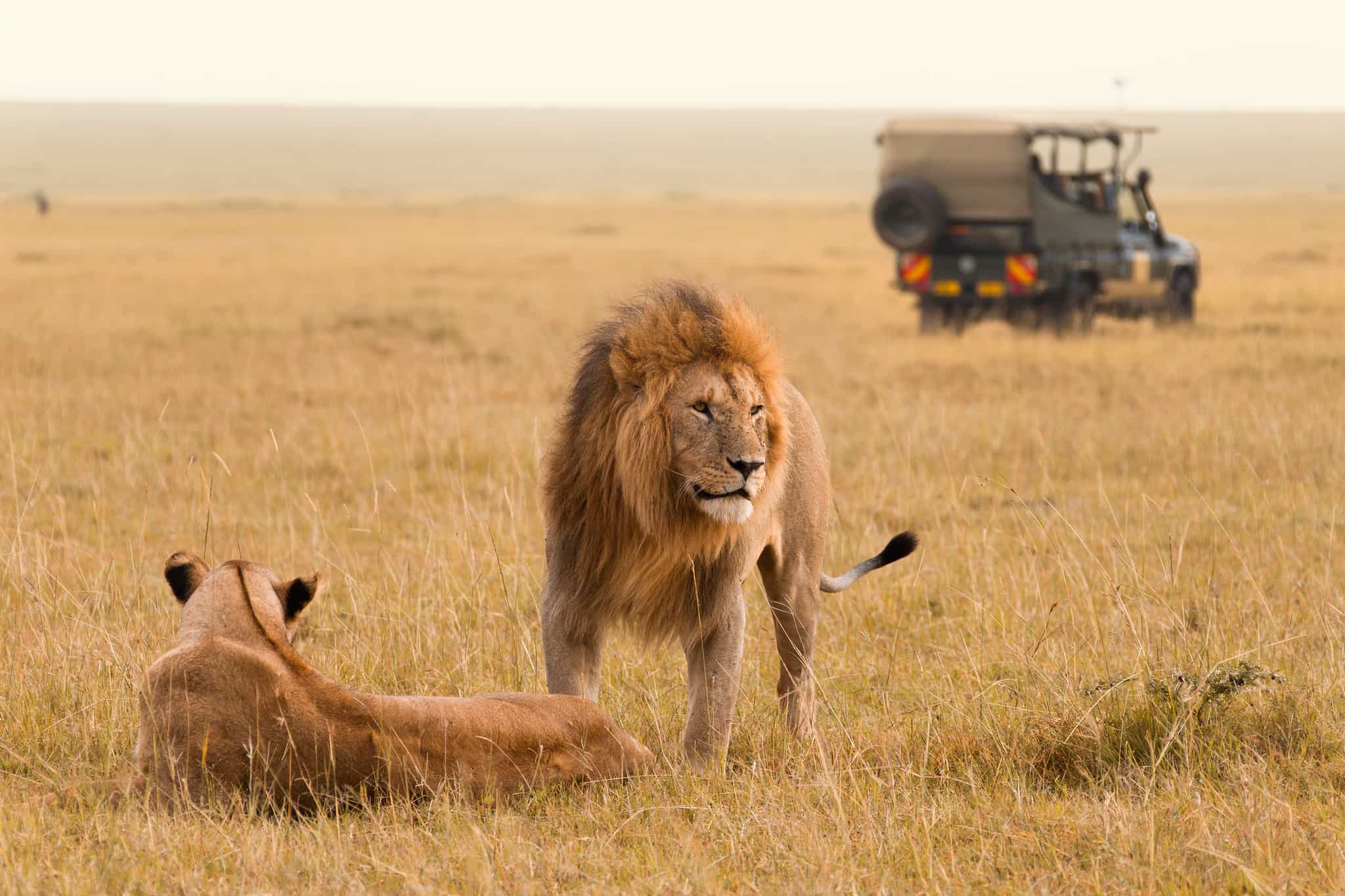
The Ultimate Kenyan Wildlife Adventure
Tackle a walking safari alongside Maasai guides, wild camping in one of Kenya's last remaining true wildernesses
What's Included?
Small Like-minded Groups
Solo-friendly by design, join our small n’ sociable groups of up to 10 like-minded, active and outdoorsy people…
…
What's it like?

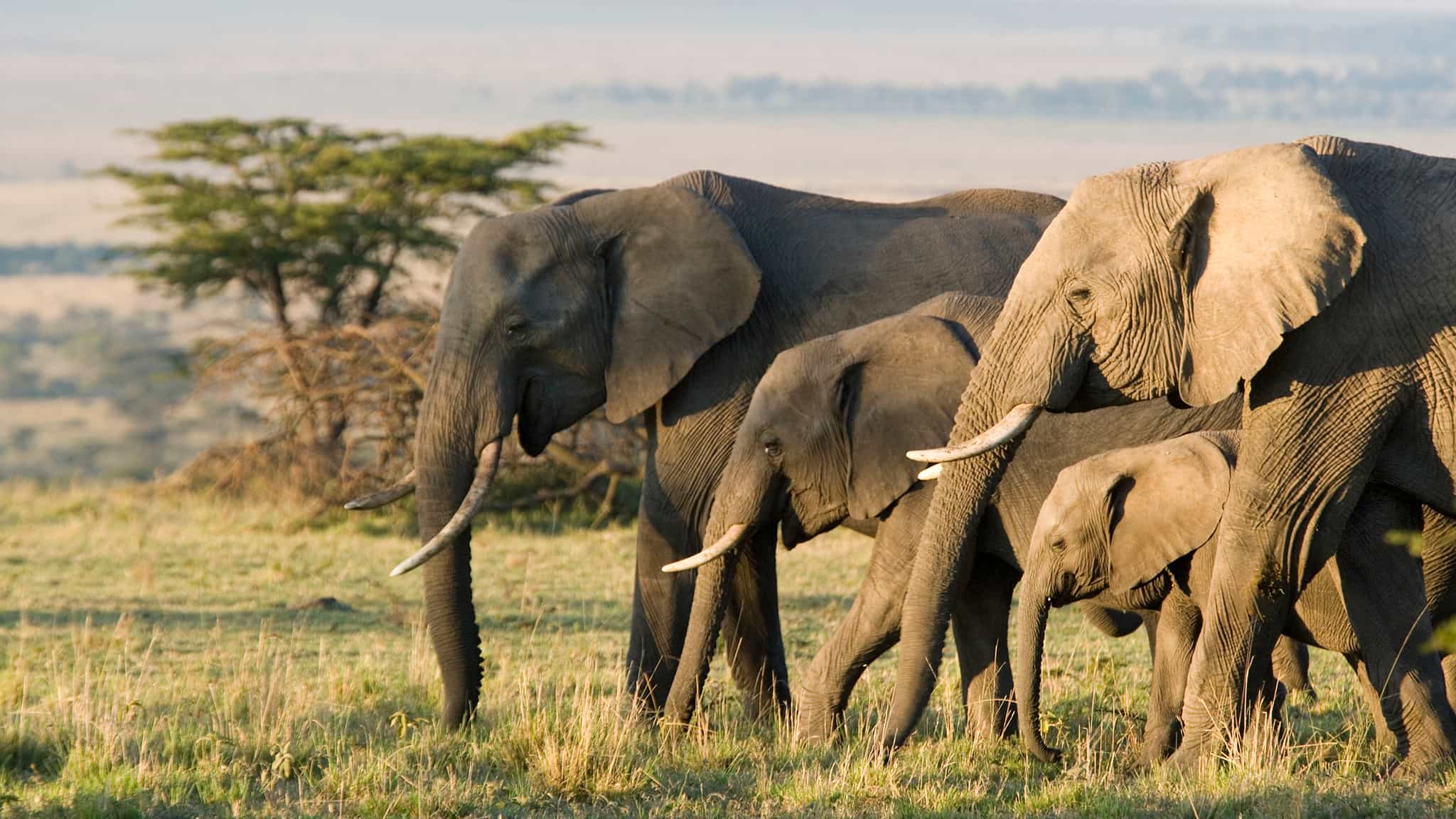
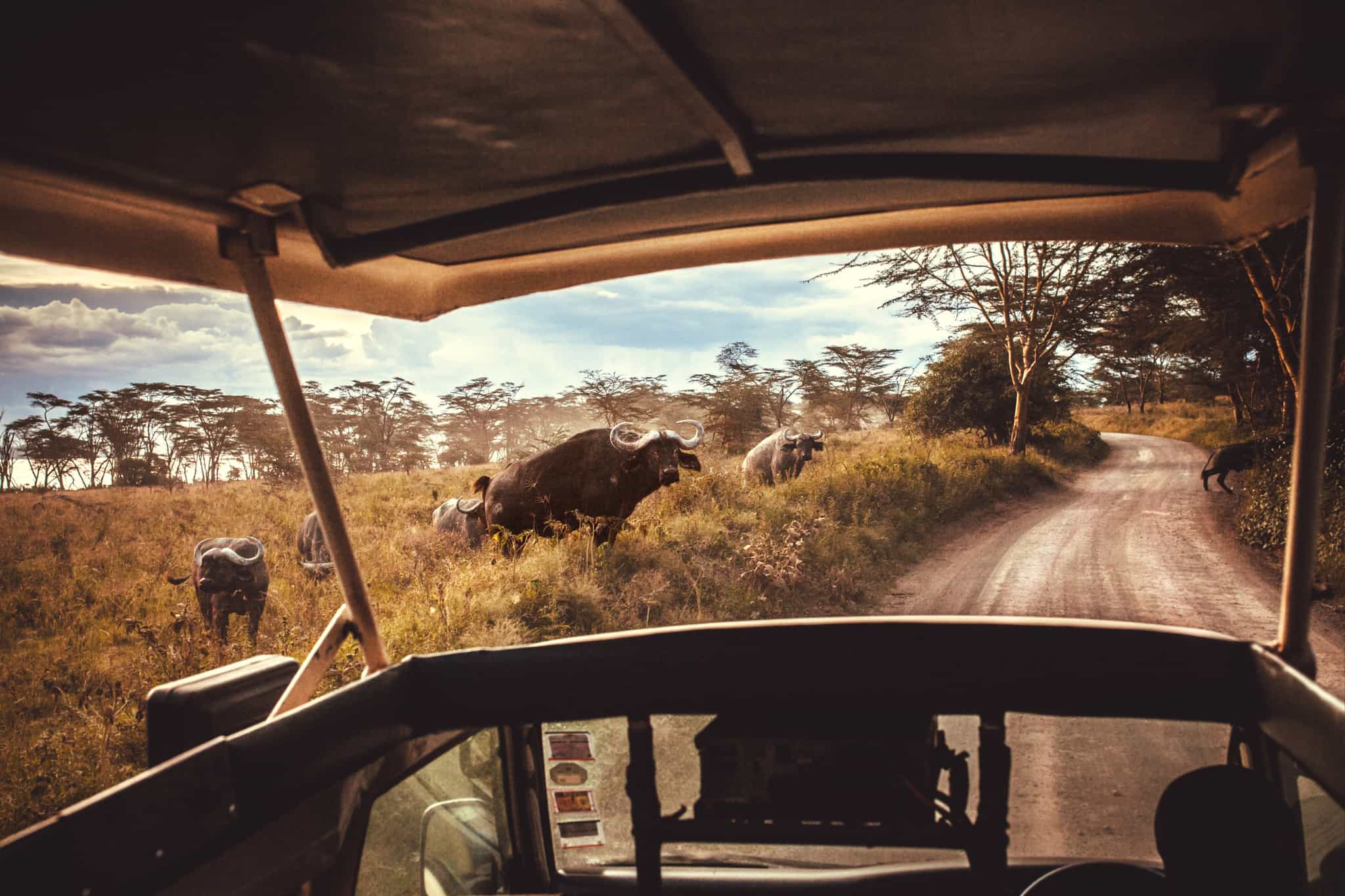
Hike in the foothills of Mount Kenya, along the rims of volcanic craters and by the shores of Rift Valley lakes
Settle in for spectacular game drives in the Masai Mara, eyes peeled for some of Africa’s most iconic wildlife
Kick back on the tranquil shores of Lake Naivasha, and refresh under the waterfalls at Mau Mau Caves
Key Information
Day 1
Welcome to Kenya
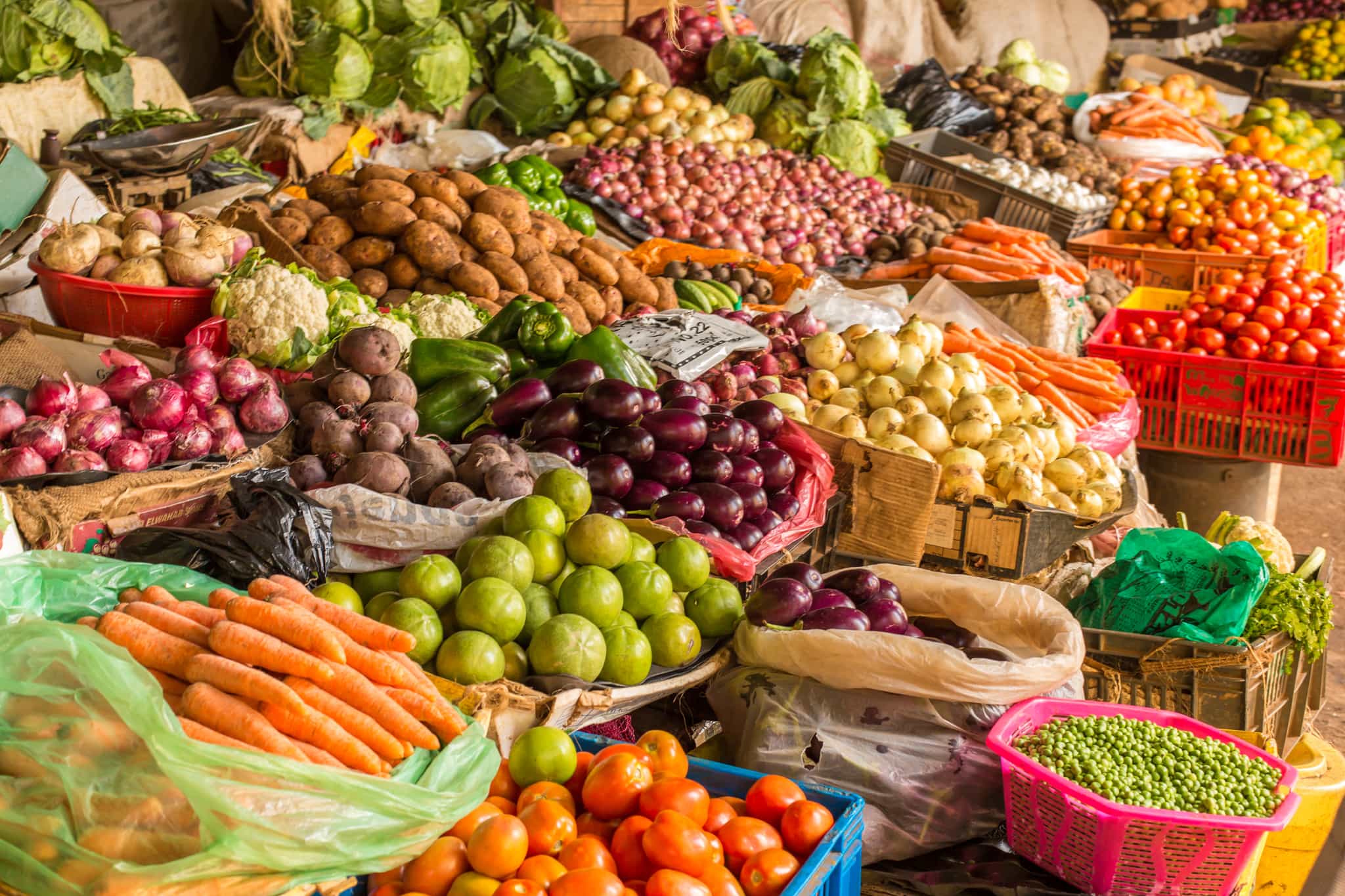
Your host will meet you on arrival at Jomo Kenyatta International Airport and transfer you to your hotel in Nairobi. Meet up with the rest of the group in the early evening for a chat through the adventure to come and a welcome dinner in a local restaurant.
Day 2
Hike the foothills of Mount Kenya
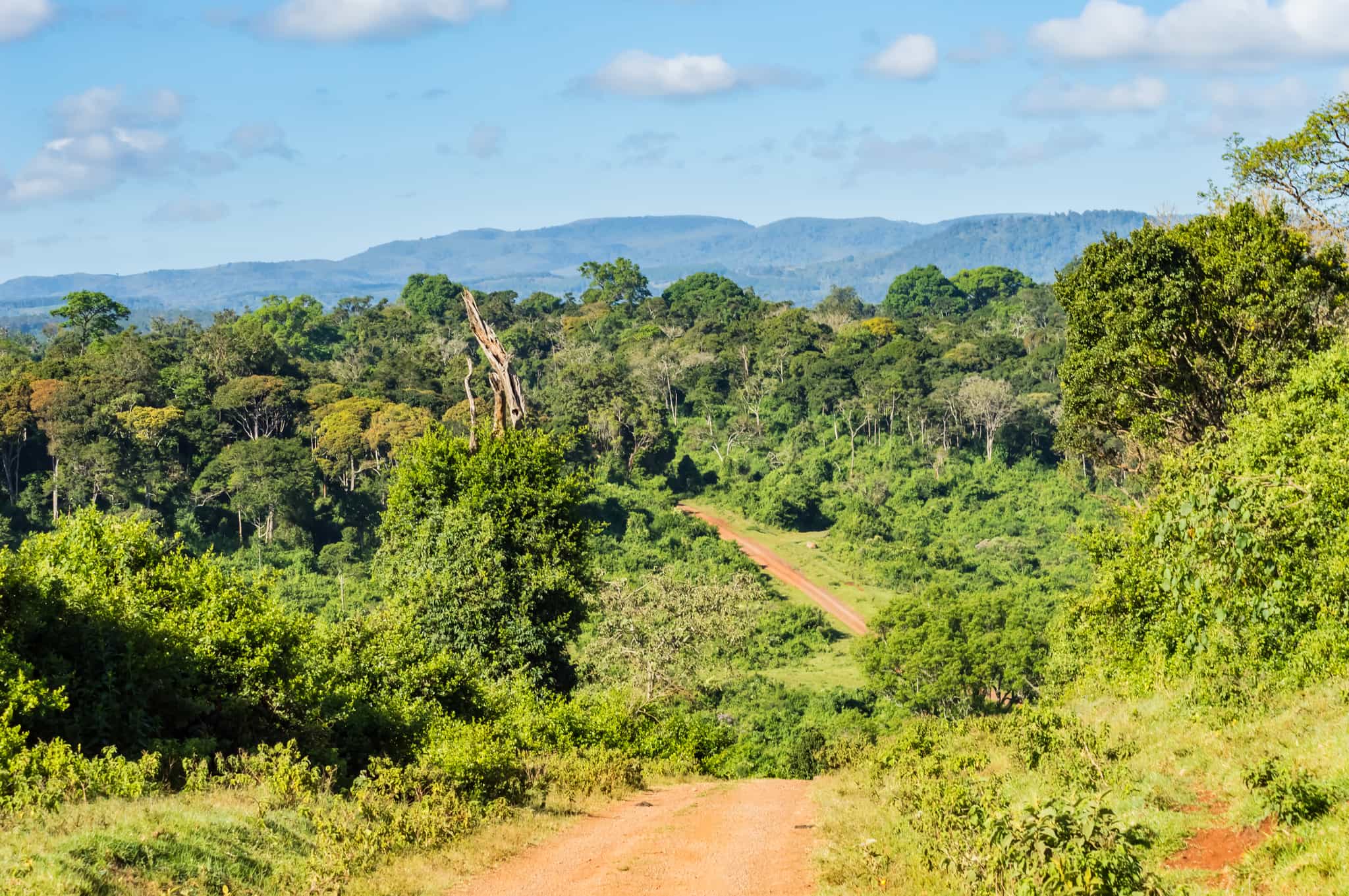
Hiking
Driving
Hop in to your custom-made safari vehicles and journey to Aberdare National Park - a protected area in central Kenya, east of the Rift Valley. Grab lunch before lacing up your boots for the first hike of the trip, exploring the foothills of Mount Kenya. Wind along the trail to reach the Mau Mau caves, a hideout place for freedom fighters during Kenya's colonial period. Take a swim or cool your feet at the waterfalls next to the caves, before heading back down for dinner.
Day 3
Aberdare National Park
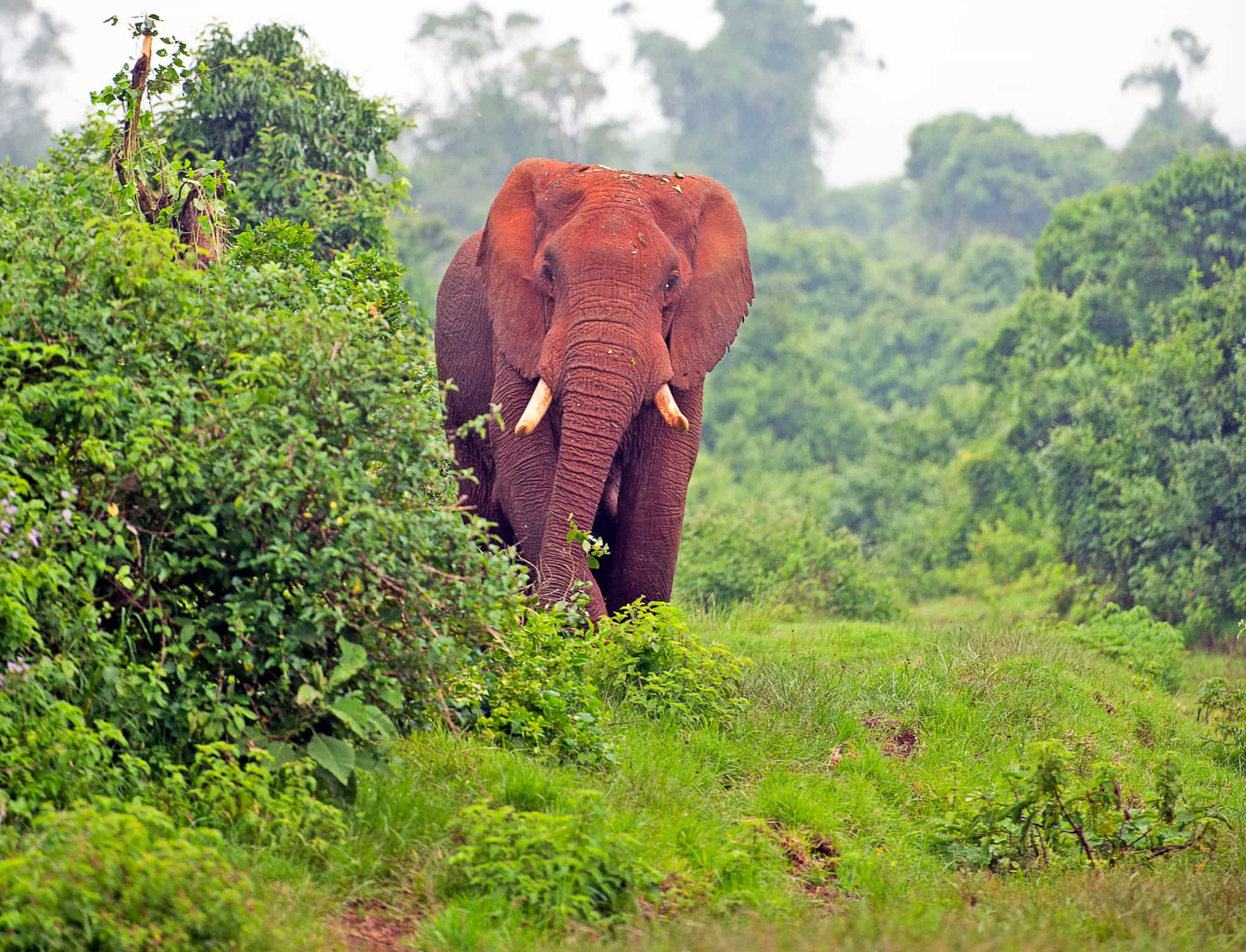
Hiking
Wildlife Tracking
After breakfast, set off for a hike inside Aberdare National Park and get your first taste of the smorgasbord of wildlife that Kenya has to offer. The park is a habitat for elephants, black rhinos, leopards, spotted hyenas, olive baboons, colobus monkeys, buffalos and many more. After your hike, you'll enjoy a game drive en route to your country club-style accommodation in the beautiful Aberdare Highlands.
Day 4
Nakuru
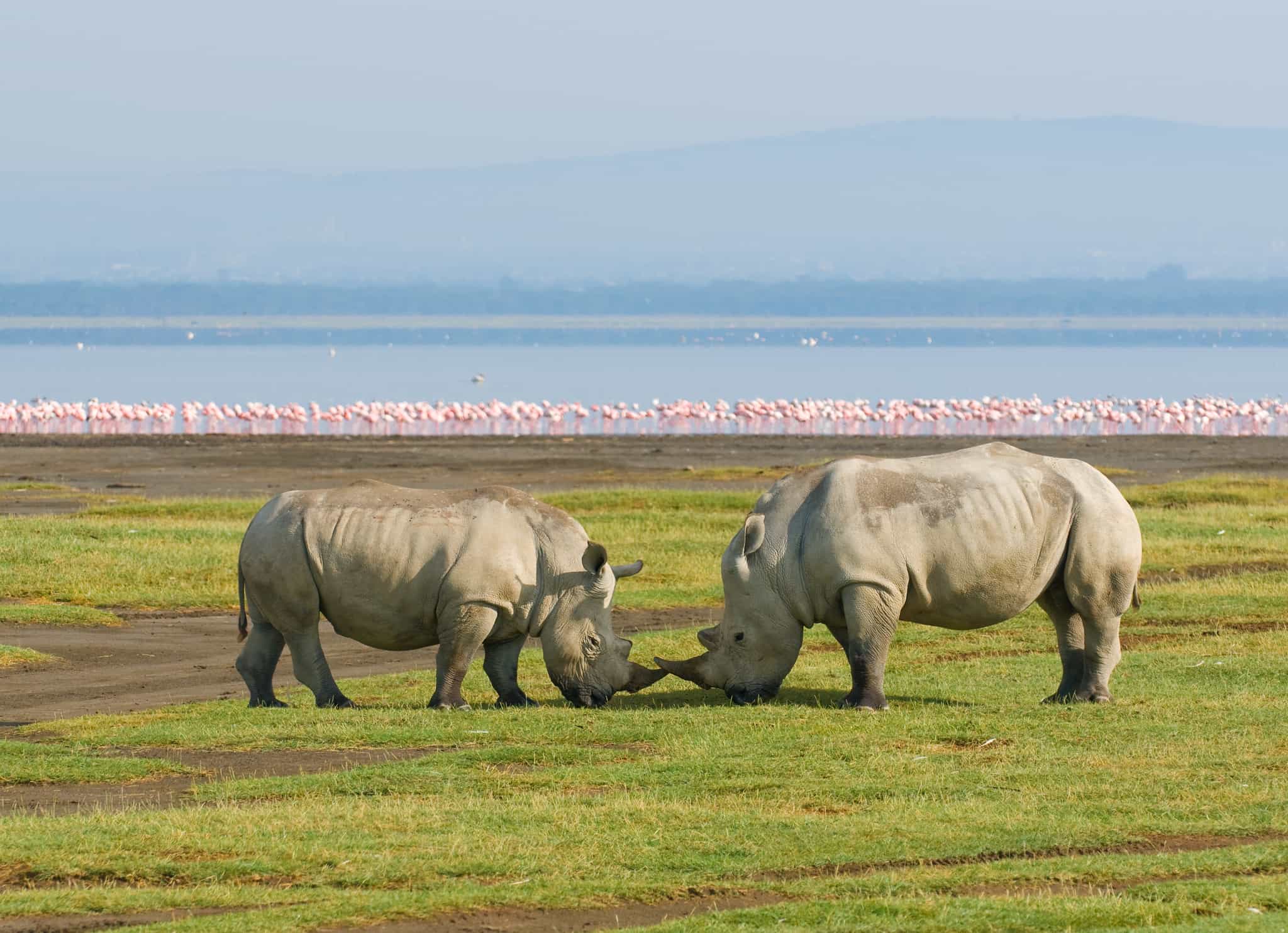
Hiking
Driving
Leave Aberdare behind and head to Nakuru County, home to some of the Rift Valley's great lakes. Lake Nakuru is best known for the millions of flamingoes nesting along its shores. Arriving at Lake Nakuru you'll tackle an afternoon hike to Menengai Crater - an extinct volcano and one of the world’s largest calderas. At the crater rim, you will be rewarded with sweeping vistas of the Northern Rift Valley.
Day 5
Lake Naivasha
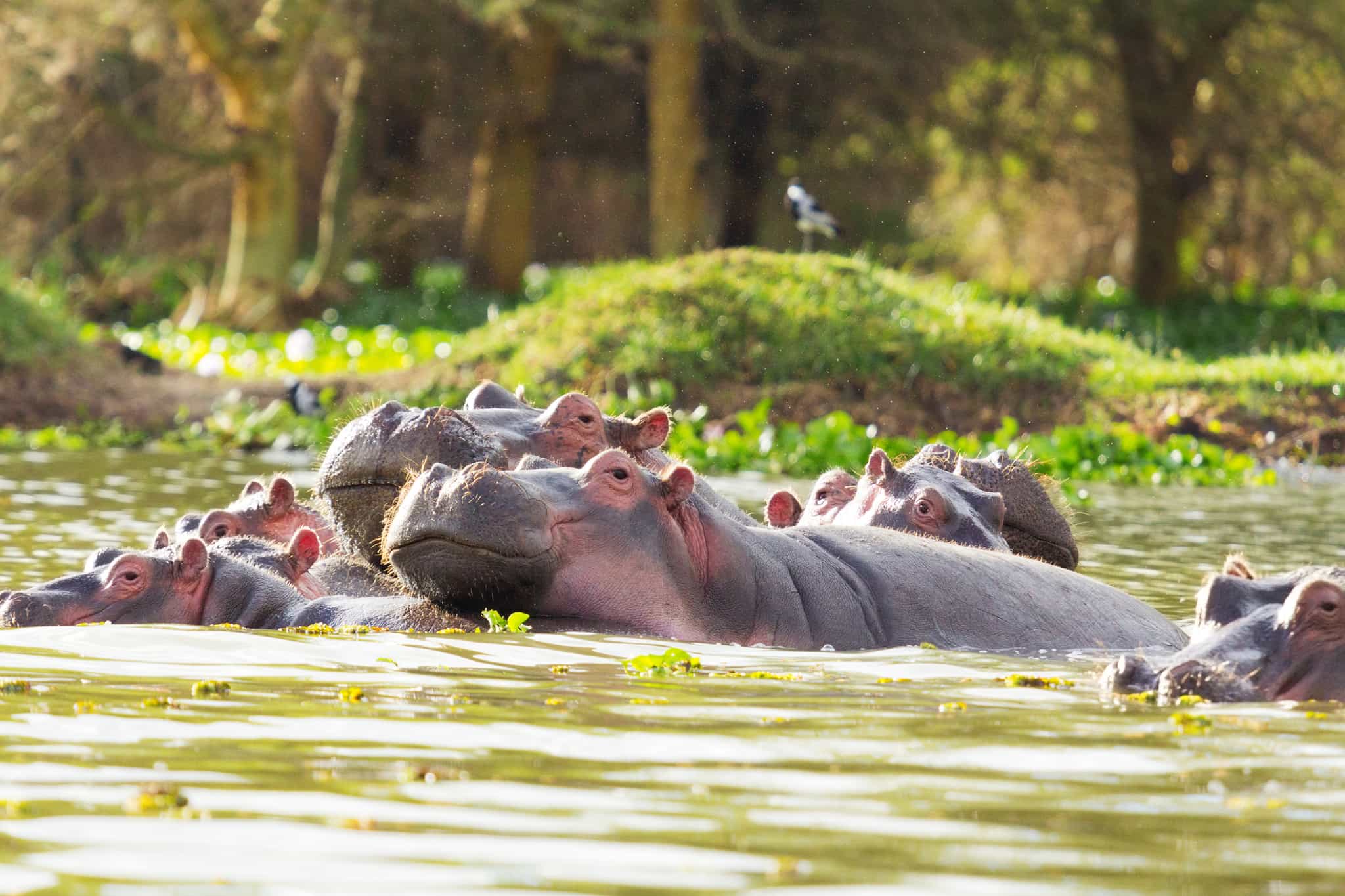
Hiking
Enjoy an early morning drive to the lakeside town of Naivasha and check in to your base for the next two nights. Head out on a hike around the Crater Lake Game Sanctuary - a beautiful volcanic lake fringed with acacias - keeping your eyes peeled for hippos, zebras and giraffes. Visit the Elsamere Conservation Centre: the former home of Joy Adamson, an iconic conservationist and author of Born Free, who dedicated her life to protecting the environment in this part of Kenya.
Day 6
Downtime at Lake Naivasha
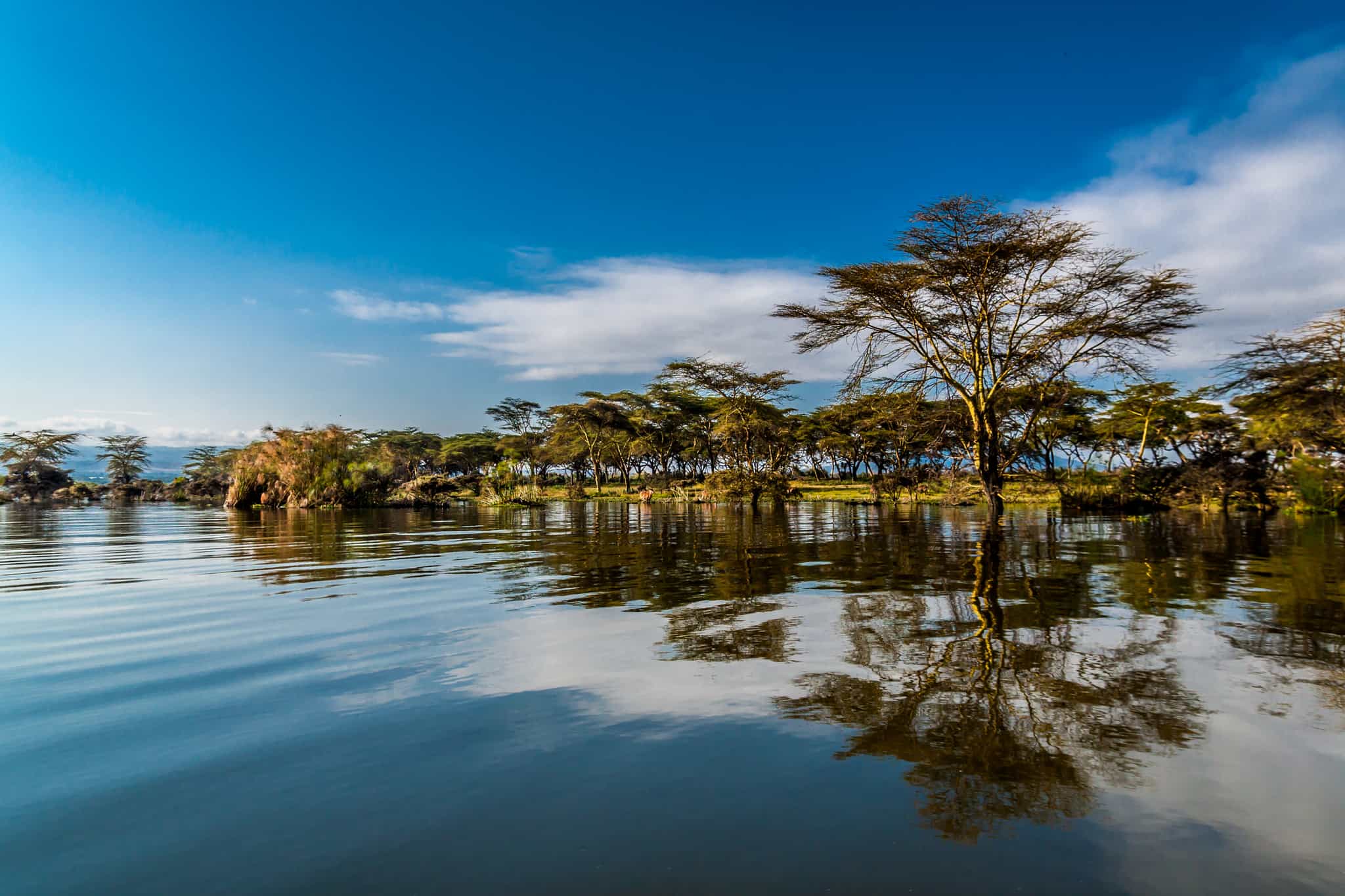
After a busy few days hiking through the wild Kenyan bush, enjoy some downtime today at your peaceful lodge on the banks of the lake. There are optional activities for you to do if you're keen to explore further, including a boat ride on the lake, a bike ride, a visit to a flower farm or a hike to Hell's Gate. There is yet more wildlife to feast your eyes on here, including a large number of eagles around the lake.
Day 7
Camp-to-camp walking safari in the Masai Mara
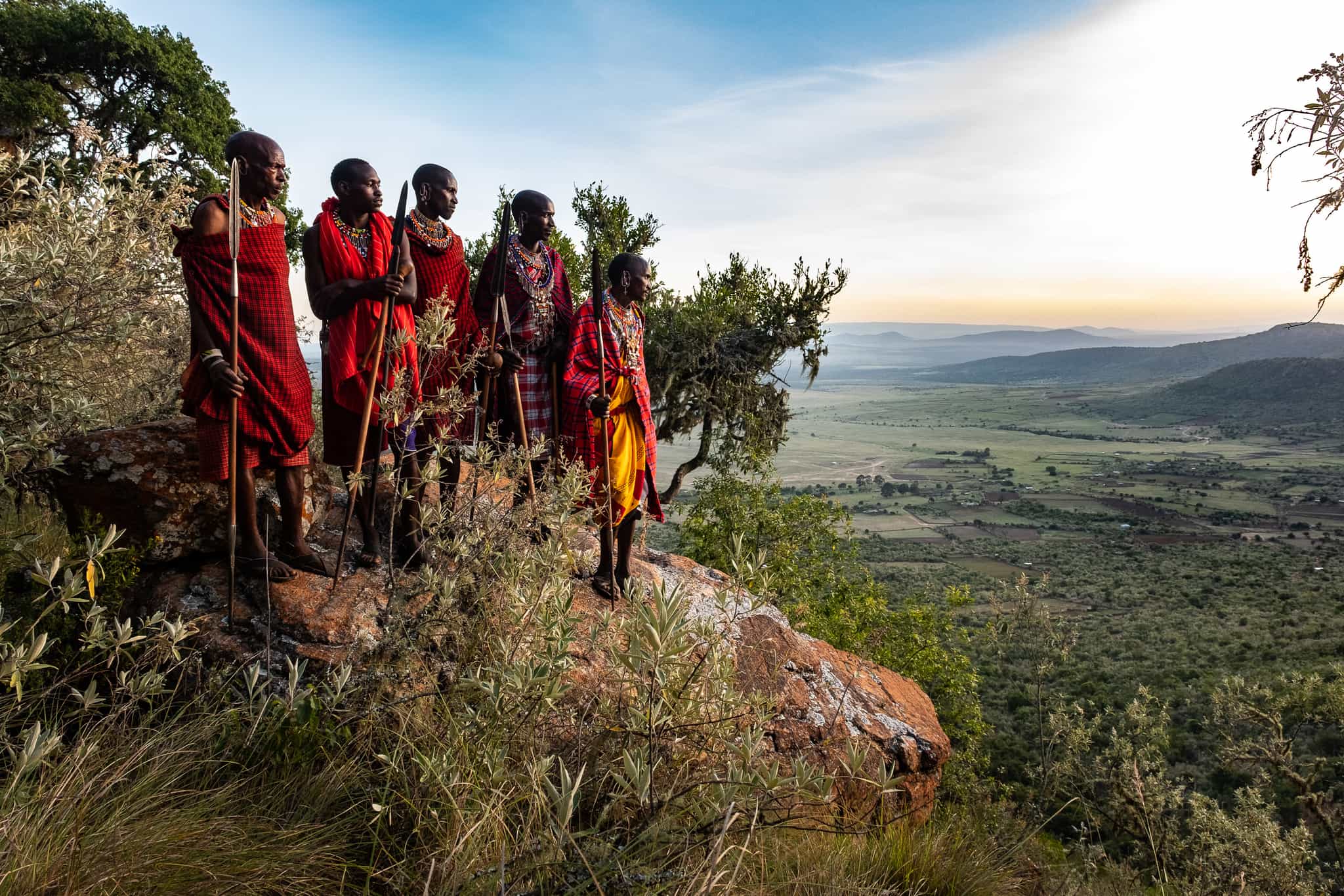
Hiking
Driving
Head for the Loita Hills, one of the key areas in Kenya where the Maasai people still practice their ancestral way of life, with little influence from the western world. The Masai Mara will be your base for the next three days as you explore the rarely visited wilderness area of Loita on foot. Hiking through the plains, forests and hills, camping in remote spots beneath wide African skies, and telling stories around the campfire, Maasai warriors will keep watch over the camp to protect the group from wild animals.
Day 8
Hiking in the African plains
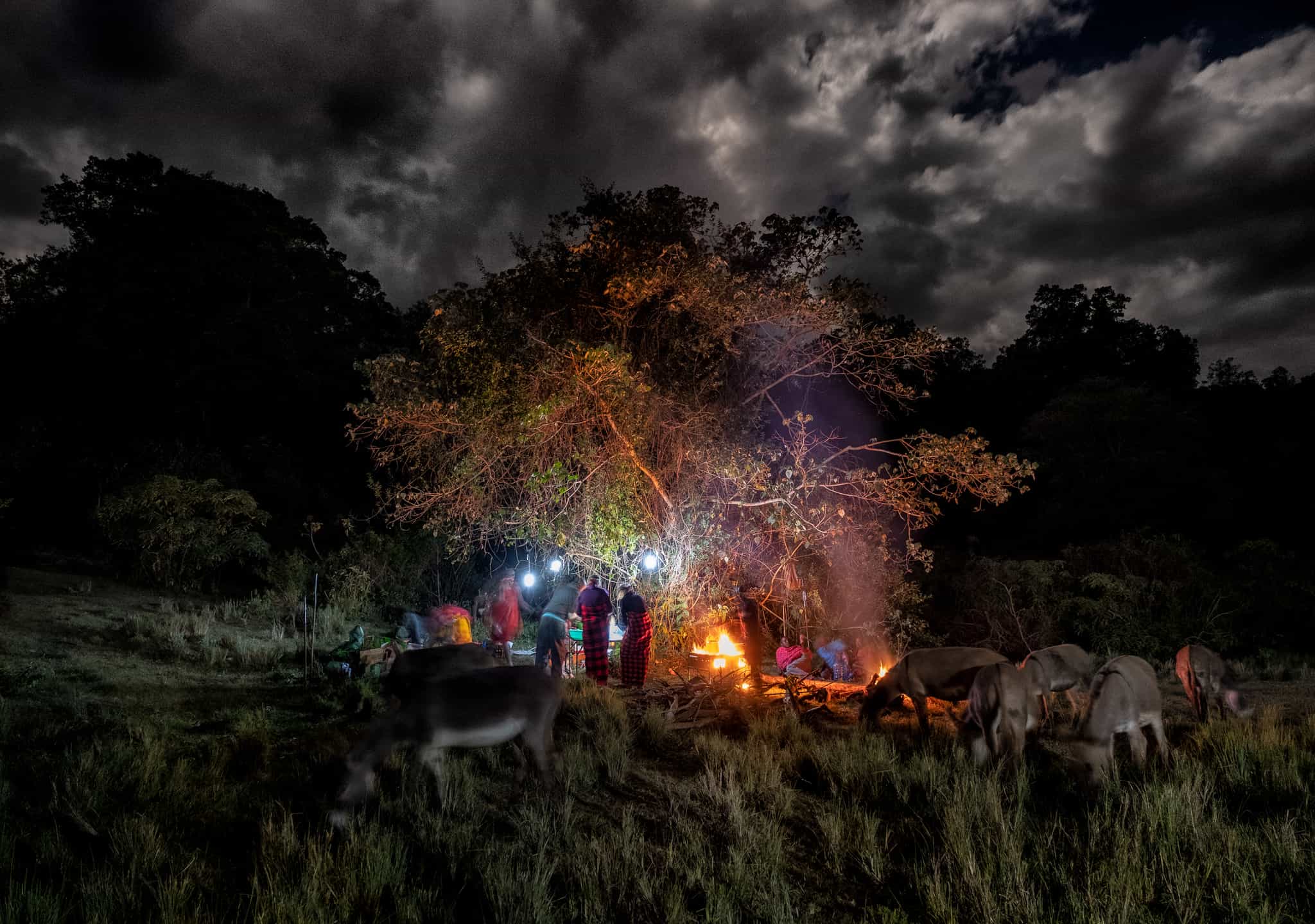
Hiking
Another day hiking through the open plains, interspersed with pockets of remote forest. The locals refer to the larger of these pockets as 'the Forest of the Lost Child', an indigenous forest full of lush vegetation. On the hike, your guide will teach you how to avoid animal conflict and how to select the best camp spots. You'll also learn about Maasai culture as you go, including traditional uses of native plants, how to cook Maasai food and meeting people in local villages. Keep your eyes peeled throughout the day for zebras, giraffes and even big cats.
Day 9
Masai Mara game drives
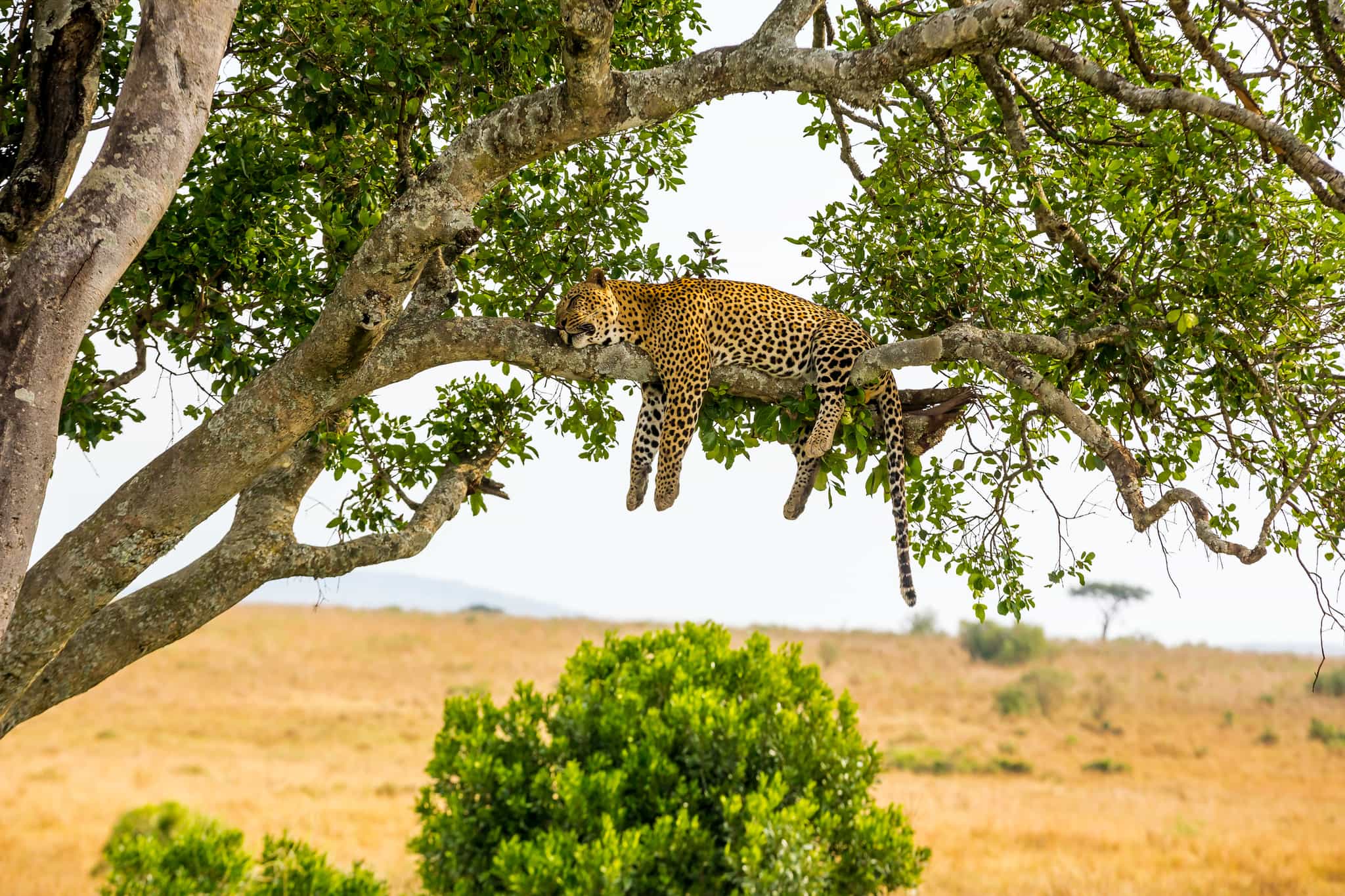
Wildlife Watching
Your legs have earned a solid rest and after two nights camping, you're due a return to serious comfort. Walking out of Loita, you'll be picked up and driven onto your safari camp in the Masai Mara. Head out for quintessential African game drives through the rolling green plains. You'll be looking out for zebra and gazelle, elephants, giraffes, myriad birdlife, black-maned lions, leopards and cheetahs. As dusk falls, plenty of animals may be visible in the vicinity of the camp while you spend a relaxing evening listening to the sounds of the bush.
Day 10
Back to Nairobi
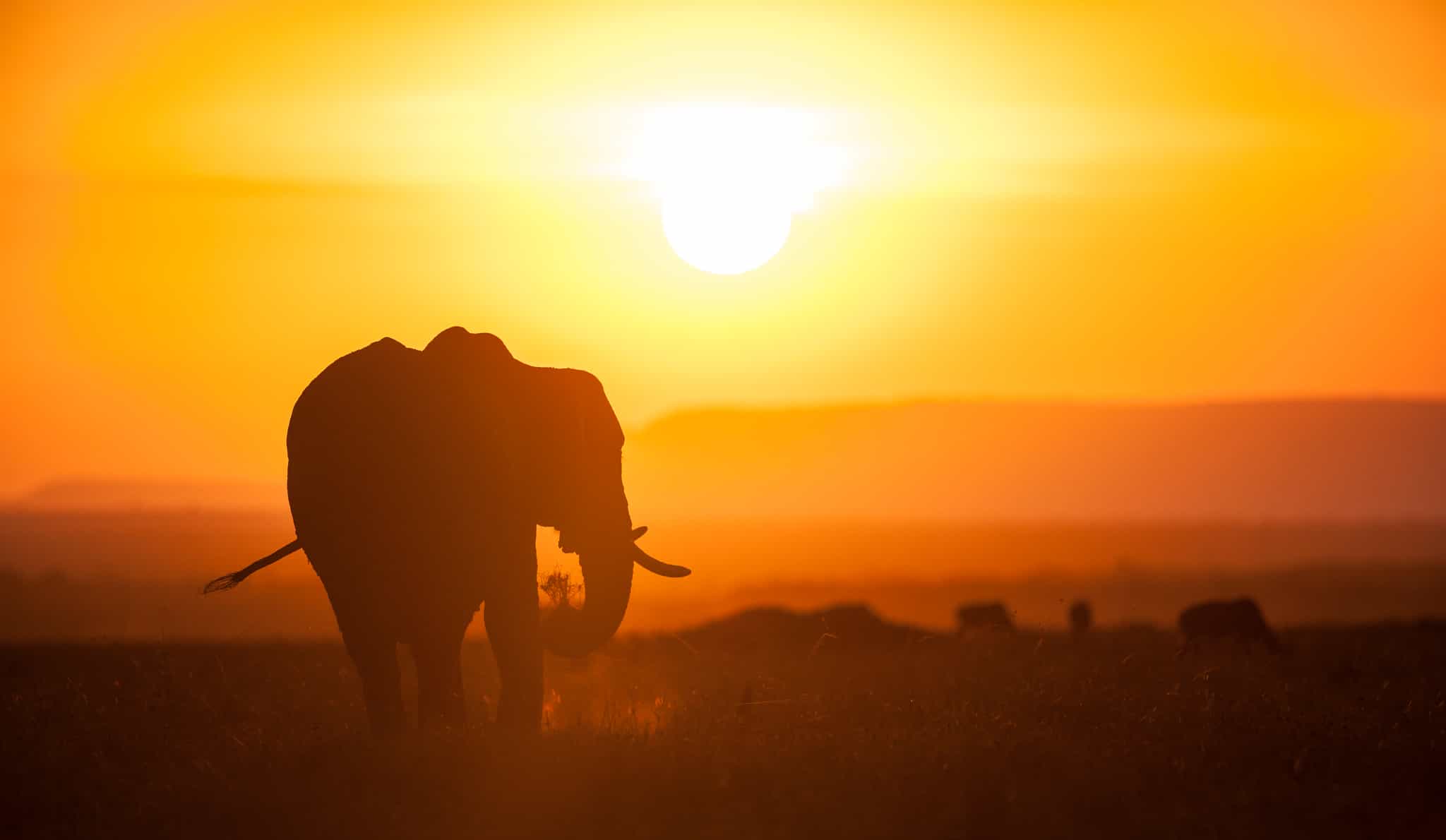
Driving
Waving a final goodbye to the Masai Mara you'll start the long journey back to Nairobi, stopping for lunch en route and arriving at the airport at around 17:00 in time for any onward evening flights. Alternatively, your host can drop you off at your accommodation in Nairobi if you are staying in Kenya for longer.
The Area
Logistics
Starts
Jomo Kenyatta International Airport
Any time on Day 1
Ends
Jomo Kenyatta International Airport
17:00 on Day 10
Transfers
Your host will meet you on arrival at the international airport in Nairobi and transfer you to your accommodation in the centre of the city. On the last day of your trip, your host will drop you off at the airport in Nairobi at approximately 17:00 in time for any flights after 20:00. Your host can also drop you off at your accommodation in central Nairobi if you are staying on longer in Kenya.
Airport transfers are included in the main price if you arrive on Day 1 and depart on Day 10. If you wish to arrive before the trip start date or stay longer at the end, your host can arrange private airport transfers and pre/post-trip accommodation. See Optional Extras for prices.
Travel options
Kenya Airways operates direct flights to Nairobi from London, Amsterdam, Paris, New York and Dubai. Travellers from other start points in Europe and North America can transit through any of the aforementioned hubs, as well as via Frankfurt and Istanbul depending on your carrier.
Day 1
Breakfast
Lunch
Dinner
Day 2
Breakfast
Lunch
Dinner
Day 3 – Day 6
Breakfast
Lunch
Dinner
Day 7 – Day 8
Breakfast
Lunch
Dinner
Day 9
Breakfast
Lunch
Dinner
Day 10
Breakfast
Lunch
Dinner
What is the food like?
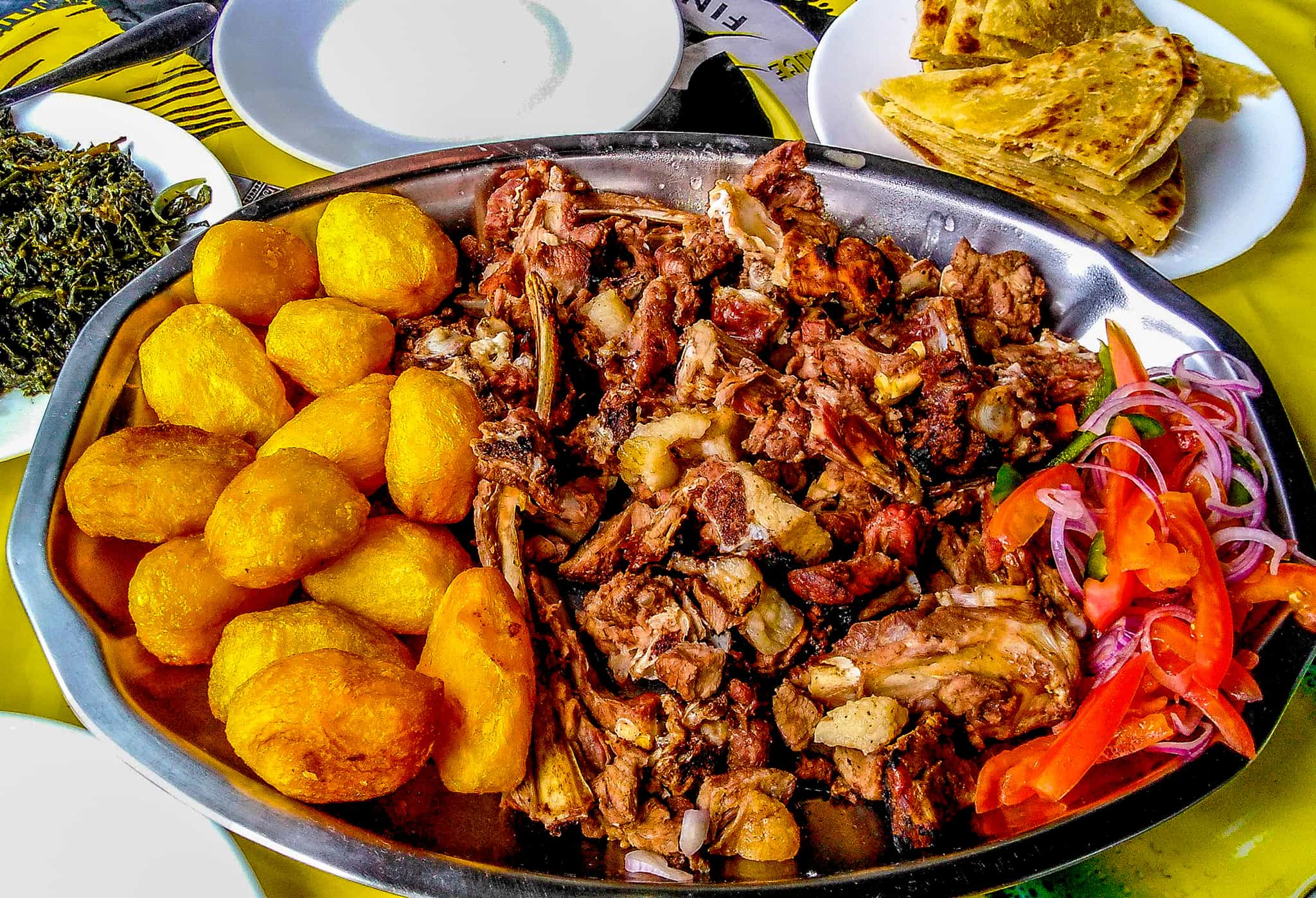
A typical breakfast includes bread, sausages, eggs, fruit and juices, or treat yourself to a few mandazi: sweet and lightly spiced doughnuts, washed down with a cup of chai tea. You'll tuck into plenty of tropical fruit such as bananas, mangoes and passion fruit. Seafood is available from Kenya's stretch of Indian Ocean coastline, with crab, prawns, snapper and yellowfin tuna making its way on to menus in some of the lodges. Dinners in safari camps are a treat - expect to eat nyama choma (barbecued meat) with gently spiced vegetable dishes and chapatis on the side.
Vegetarians, vegans and other dietary requirements and allergies can be catered for - please just request this on your passenger info form.
What is the accommodation like?
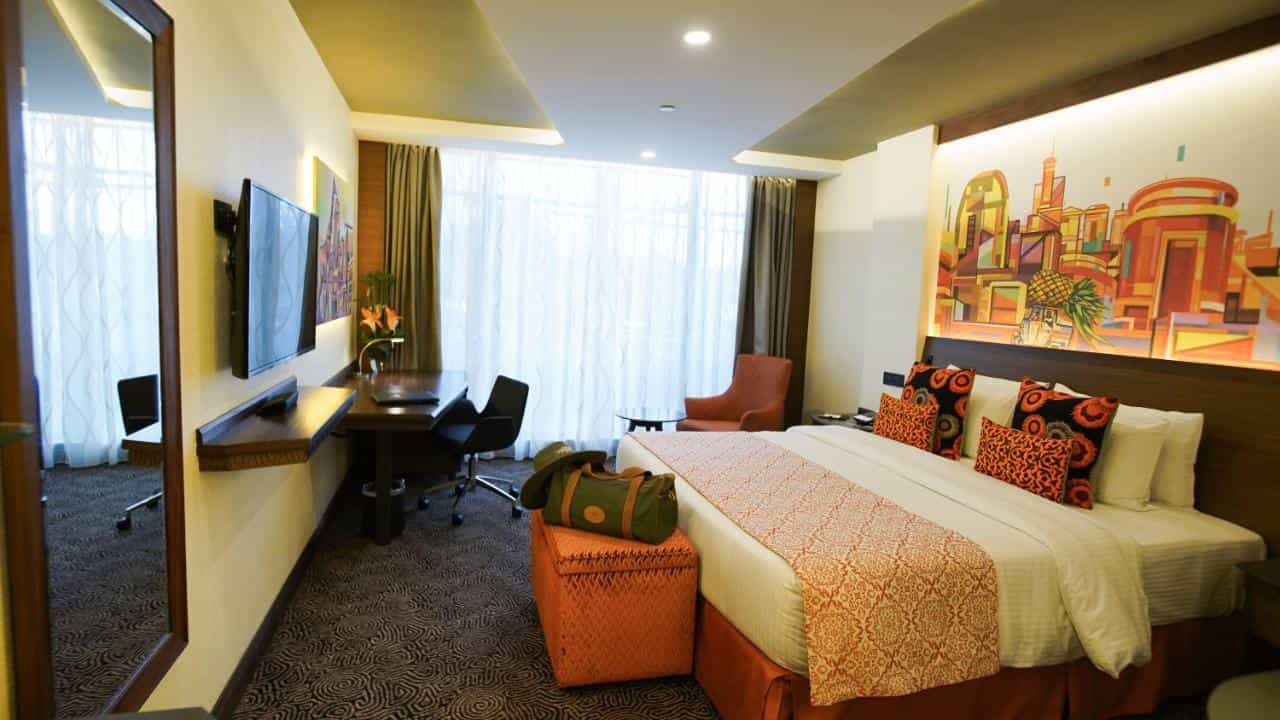
Nairobi
In the heart of Kenya's capital, you'll stay at the Sarova Panafric Hotel, a 4-star hotel with an outdoor swimming pool, bar and two good restaurants. You'll stay in twin-share rooms with an en-suite bathroom.
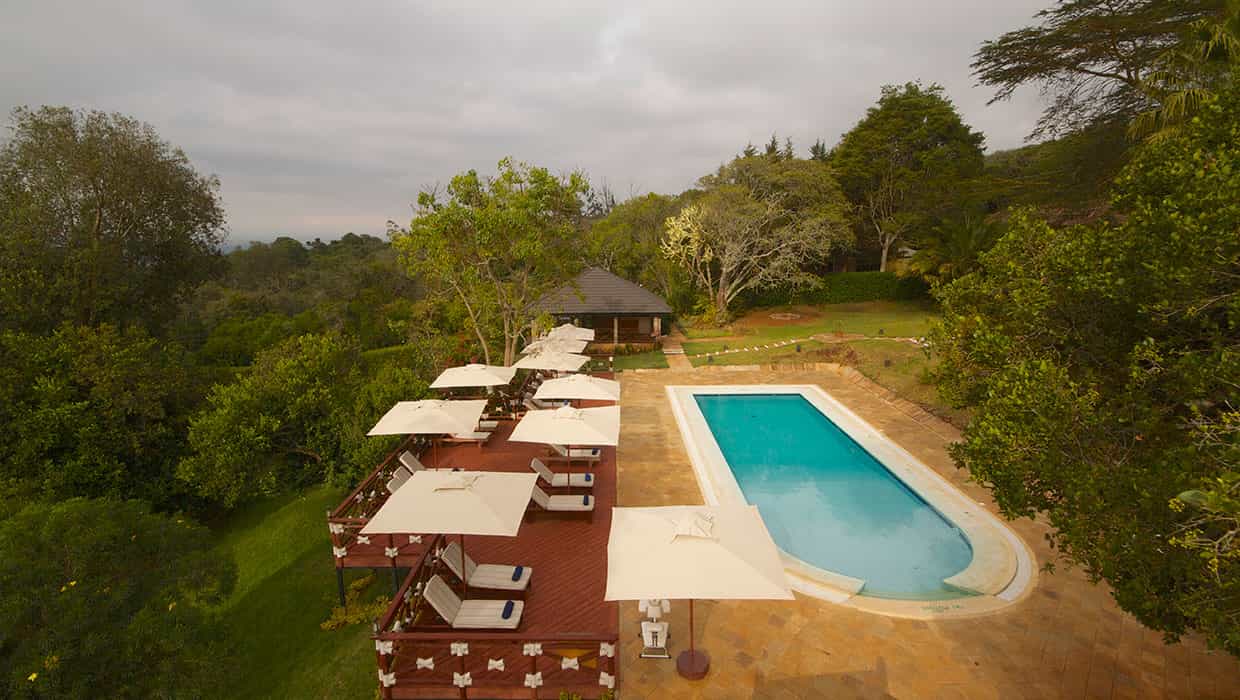
Aberdare
Nestled on a hillside in the Aberdare Highlands - part of the Great Rift Valley - lies Aberdare Country Club. A former private residence of an English couple who settled in Kenya, the country club retains the charm of a private home with the comforts of a country inn. You'll stay in twin-share rooms with an en-suite bathroom.
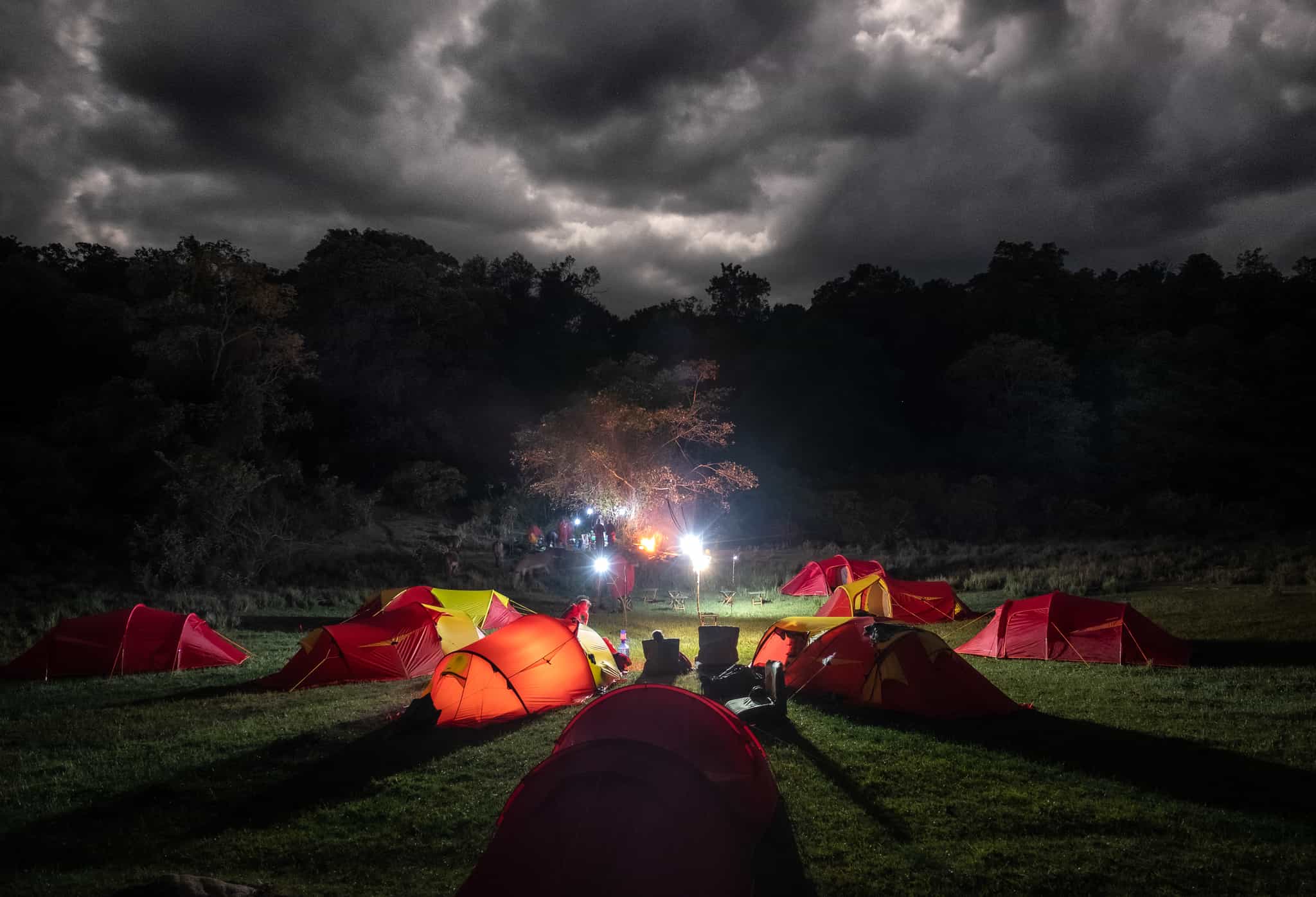
Wild Camping on the edge of the Masai Mara
You'll spend two nights camping in the wild at different spots within the Loita Hills, on the fringe of the Masai Mara. This is the perfect way to experience the African wilderness - with campfire meals and nights spent sleeping beneath the stars. You'll stay in simple twin-share tents with camp beds, bedding and towels provided. There will be a shared toilet and shower tent set up at each spot that you camp. Maasai warriors will be guarding your camp against animals.
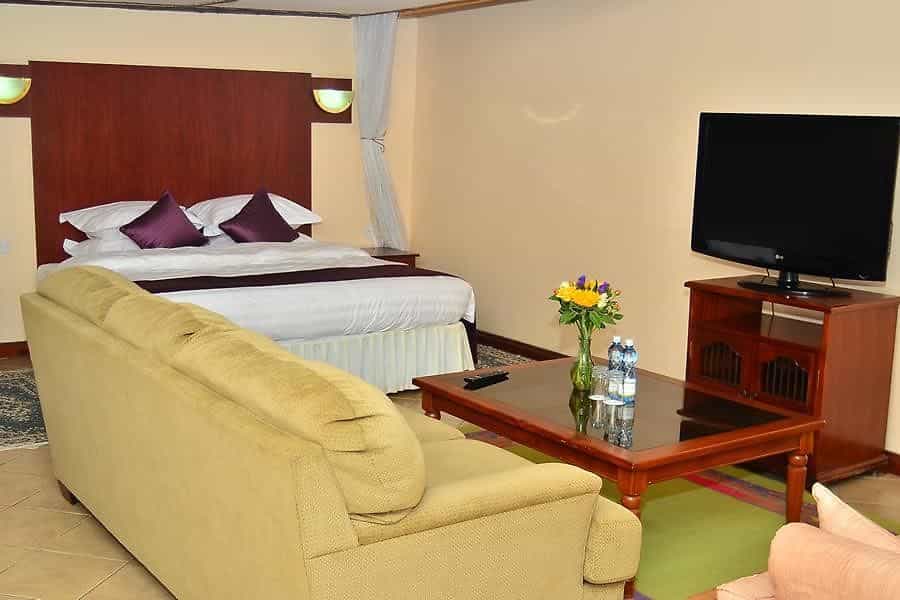
Lake Naivasha
A short drive away from Lake Naivasha you'll stay at Fish Eagle Inn, a perfect launchpad for exploring the national park here. You'll stay in twin-share rooms with en-suite bathroons.
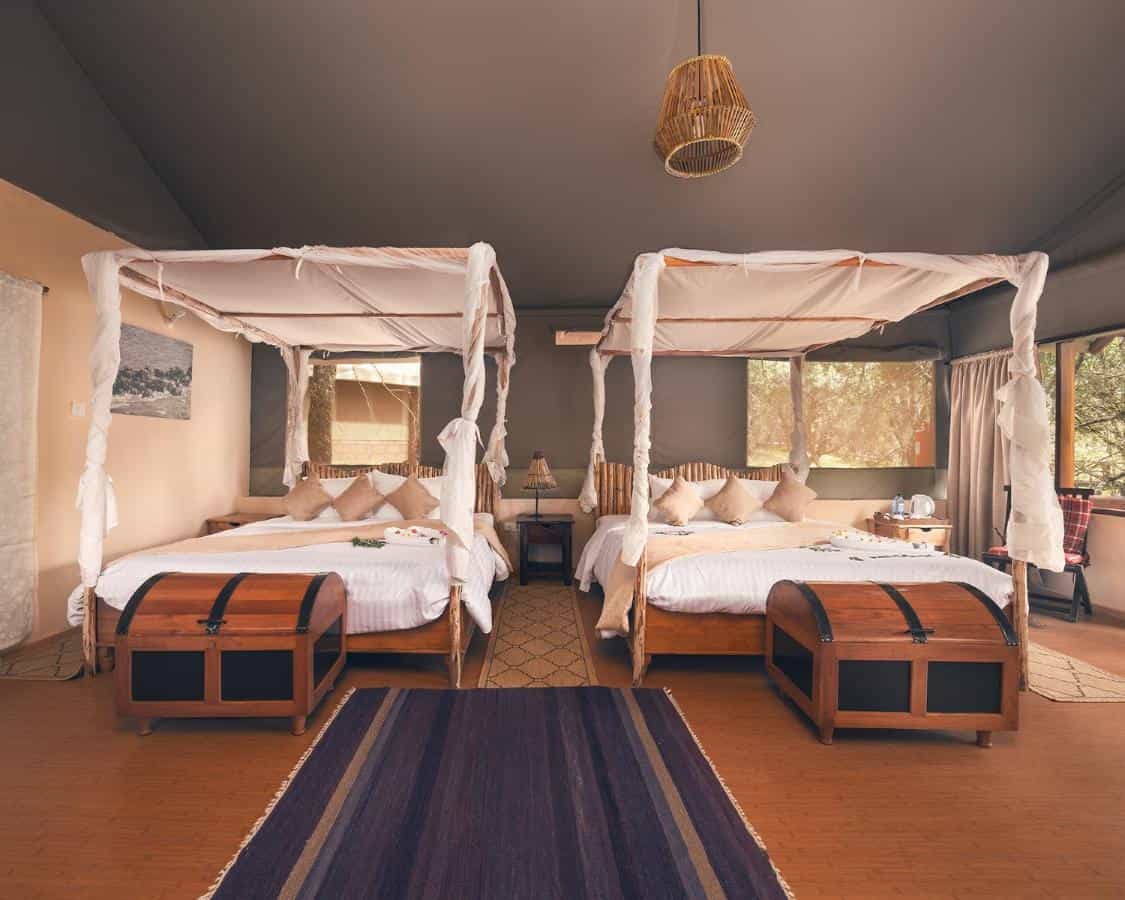
Masai Mara
In the Masai Mara itself, following a busy day of game drives, you'll kick back in at the Mara Kimana Camp – located within one of the most spectacular locations in the Masai Mara Game Reserve. As dusk rolls in, enjoy the sunset over the plains while sipping a sundowner. After nightfall, listen to the unique sounds of the African wilderness beneath star-studded skies. There's an excellent restaurant, an inviting swimming pool and warm Maasai hospitality. You'll stay in twin-share rooms with en-suite bathrooms.
Upgrades
For solo travellers looking for their own space, an optional private room and tent can be booked for an extra charge, see Optional Extras for the price. Please request this at the time of booking (this is subject to availability).
The trip was excellent. brilliantly executed for the first trip of this kind in Kenya from MuchBetterAdventures. Between the two of us the trip up Longonot and the glory of hiking such naturally beautiful scenery around kenya stole my partners heart, for myself it was time spent with and absorbing the Masai peoples and the land they cover with such connection; being trusted to share in their culture comes with immense gratitude and honour. I plan on returning to expand on that intrigue in particular in the near future. The group dynamic is hard to expand on, since we were the first two to take the trip. Hopefully this recommendation encourages others to explore kenya in this way. The most “unsustainable” aspects are largely by our own doing, buying large 10litre bottles of water to fill our canteens from, indulging in snacks at petrol station fill ups and ergo petrol itself is unavoidable and not a criticism against the trip itself. we were never given plastic bottles, we never had to buy the endless packets of crisps outside of the ample food provided. and by the nature of kenya, that food is almost always locally sourced, fresh and delicious. the health and safety measures i can speak on with some confidence, because prior to leaving for the trip i got pretty f-ing ill. i was given advice, i was taken to the doctors, i was constantly cared for and i was helped towards recovery. i missed a few mornings but was gently encouraged to enjoy the afternoons and evenings, and they were right in their gentle encouragement. this goes particularly for Ole Maantu - our guide, fixer, advisor, warrior elder, driver, historian, teacher and ultimately, friend. he deserves a great deal of appreciation and merit for all he does, and also for being able to receive our experiences and tweak them day by day to better suit our expectations. he never failed to deliver.
i think the only adjustment we’d make to the trip is perhaps swapping the order in which the visits to the Aberdare country club and the Mau Mau caves are made, perhaps staying the evening there arriving after lunch, waking to do the gentle nature walk with Francis, visiting the caves at midday then heading to the Arc afterwards. We say this because the country club is quite spectacular and though the Mau Mau caves are beautiful and historically important. the guide and the walk there was quite underwhelming, and despite being the only two guests there, we’re told by phone call that we had to leave the caves prematurely to go to lunch, and then promptly showed back to the jeep to leave. The caves deserved more of an explanation to their importance, and to be enjoyed more fully. and the lunch could’ve been delayed somewhat i’m sure. due to the walk being in the middle of the day, any chance of spotting an animal was pretty much removed - the walk itself to the caves is rather dull aside from a few turns in the terrain as the caves appear. the country club helped remedy this initial concern but the initial concern was quite profound. the trip would be more coherent this way around.
9.5/10!
Guides
Local, English-speaking, female tour leader; Maasai guides for wilderness hiking & safari
Accommodation
Think African lodges, hotels with pools, safari tents and snoozing directly under the stars
Meals
All your meals are included
Transfers
Airport transfers and everything in between
Equipment
All camping equipment for the wild camps
Permits
All national park entry fees
Our trips are hassle-free by design. We include all the activities and equipment, as well as many of the meals, so you can simply rock up with your rucksack and share the adventure with your new pals.
Personal Expenses
You know your own spending habits best, so please budget an appropriate amount for things like optional meals and drinks, shopping, optional activities, and laundry.
What's included?
- Twin tents, camp beds, bedding and towels during the wild camping experience in Loita
What do I need to bring?
BAGS
- Soft overnight duffel bag or rucksack
- Daypack (20-30 litres)
- Waterproof cover/liner for daypack
SLEEPING
- 2-3 season sleeping bag (if you don't wish to hire one)
- Sleeping bag liner
CLOTHES
- Light waterproof jacket
- Light waterproof trousers
- Fleece jacket or similar for cooler evenings
- Buff or neckscarf for sun protection
- Lightweight trousers/shorts/skirts
- T-shirts
- Underwear & socks
- Swimwear (for swimming pools at some accommodations)
- Sunglasses
- Sunhat
- Something to sleep in
- Hiking boots or shoes (worn-in)
- Sandals
OTHER
- Universal travel plug adapter
- Passports (and visas)
- Travel insurance documents
- Ear plugs
- Insect repellent
- Suncream
- Personal first-aid kit (inc. blister treatment)
- Personal items (biodegradable toiletries, sanitary wear etc)
- Quick-dry towel
- Alcohol hand-gel
- Reusable water bottle x1 litre
- Biodegradable wet-wipes
- Energy bars and snacks - read our article on Best Hiking Snacks
Sleeping bag hire for 2 nights camping in Loita
Payable Before Departure
Sleeping bag hire for 2 nights camping in Loita
…
Pre/post trip accommodation in Nairobi (single, twin or double)
Payable Before Departure
Pre/post trip accommodation in Nairobi (single, twin or double)
… Per night
Optional Private Room & Tent Upgrade
Payable Before Departure
Optional Private Room & Tent Upgrade
…
Private airport transfer - each way
Payable Before Departure
Private airport transfer - each way
…
We partner with the World Land Trust to ensure this trip achieves Net-Zero emissions. We also support their Buy an Acre programme, helping local communities to buy and protect natural habitats in perpetuity.
What's the number?
It works out on average at 305kg of CO2 emissions per person, including all local transport, accommodation, food, activities, guides, staff and office operations.
The only thing it doesn’t include right now is flights and travel to the destination. We do make an overall estimate across all our customers separately, but as we don’t book flights, have customers from all corners of the world, and no way of reliably knowing their travel plans, we simply can’t include an individual number in the figure on display here. We’ve got a goal to fix that, so that when you book, there is a way to measure and mitigate the carbon emitted by your flight too.
But what does the number mean?
Yep, hard to picture eh? To give you an idea:
- Driving 1000 miles/1609km would be approximately 281kg of CO2 in an average car (or 140.5kg per person, if there were two of you in it).
- A return economy class flight between London and New York would be approximately 1619kg (1.66 tonnes) per person.
- 10 trees in a temperate forest are estimated to remove approximately 250kg of CO2 from the air in a period of 5-10 years.
What are we doing about it?
Our trips are relatively low-carbon by design, and we're working with all our hosts to develop long term carbon reduction plans. We partner with the World Land Trust to ensure this trip achieves Net-Zero emissions. We also support their Buy an Acre programme, helping local communities to buy and protect natural habitats in perpetuity, ensuring the protection of the reserve and its wildlife.
Want to know more?
Amazingly, no international travel company has ever publicly published their carbon measurements before, as far as we know. We believe that must change, quickly. So we’re openly sharing the method we used in the hope that other companies will be able to more easily follow suit and build on what we've done so far. You'll find it all here.
Tips are not included in the trip cost. These are entirely at your discretion but there is an expectation to tip for good service. Your guide will help with advice, however we suggest the below as a guideline per person:
$10USD per person per day
Of course, you are free to tip more or less, and the amount should be reflective of your perception of service and quality - a tip is not compulsory and should only be given when you receive excellent service.
Tap water is not safe for travellers to drink in Kenya. Most of the hotels and lodges you'll stay at will provide safe drinking water, and your host will ensure purified drinking water is supplied throughout the trip, including while in the wilderness area of Loita. Make sure to bring along a reusable water bottle or two to keep water with you while on safari and on the hikes.
Your luggage will be transported in the overland vehicle throughout the adventure, and it is safe to leave it in the vehicle with your host and driver. It is also possible to store extra luggage at the hotel in Nairobi at the start of the trip, to collect when you return to the capital at the end.
Sure can! Over 70% of our travellers travel solo, it’s a great way to meet like-minded people.
Our team of Adventure Hunters co-create exclusive adventures which are run by highly vetted, specialist hosts. The trip is run by our trusted host partner in the destination. We only work with independent, local, in-destination experts who know the very best places to explore and how to stay safe. Read more information about the local teams we partner with. You’ll be introduced to the host straight after making a booking via the Much Better Adventures platform.
Much Better Adventures refer to the UK Government’s official travel advice when designing trips and monitoring trip operations. We recommend that all customers are familiar with the practical information provided on the Government’s FCDO website, where current travel advice can be found by searching for the applicable destination(s).
For customers joining this trip from other international destinations – please also read the official travel advice applicable to your country of residence/origin, as this may differ.
We recommend checking out the country-specific information and also talking to a travel nurse.
We automatically convert prices from the local currency that a host receives to your chosen currency. We update our exchange rates on a daily basis so this does mean that prices displayed on the site are subject to currency fluctuations, which is why you may see them change over time.
If you wish to change the currency you pay in, head to the bottom of the page.
All of our group adventures are specially designed for adults to enjoy as we want these adventures to bring together outdoorsy people who are truly like-minded. You must be over 18 to join one of our trips.
You're always in good company on one of our adventures.
Our trips are typically made up of a mixture of solo travellers and small groups of 2 or 3 friends, with most in their 30s-50s.
Our sociable adventures are solo-friendly by design and naturally attract outdoorsy people with a shared mindset; a love for adventure, a desire to push themselves and meet awesome, like-minded people along the way.
It’s this camaraderie that has so often turned a great adventure into a life-changing one.
Don't just take our word for it:
- 95% of people rate the group dynamics on our trips 5/5
- 90% of people recommend joining a trip to make new friends
- 75% of people have met people on our trips that they would now consider friends
See here for more info about the Much Better Adventures tribe.
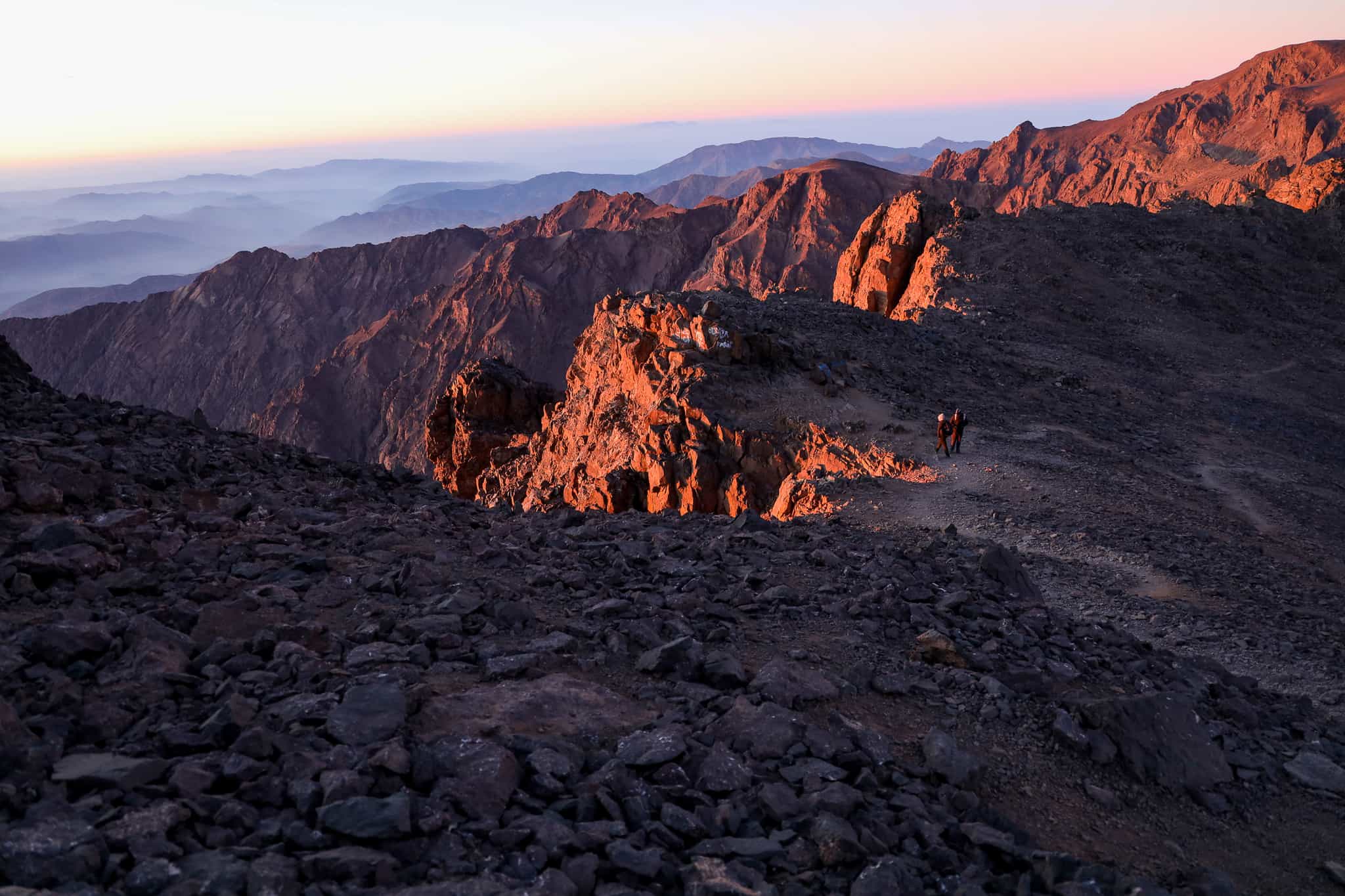
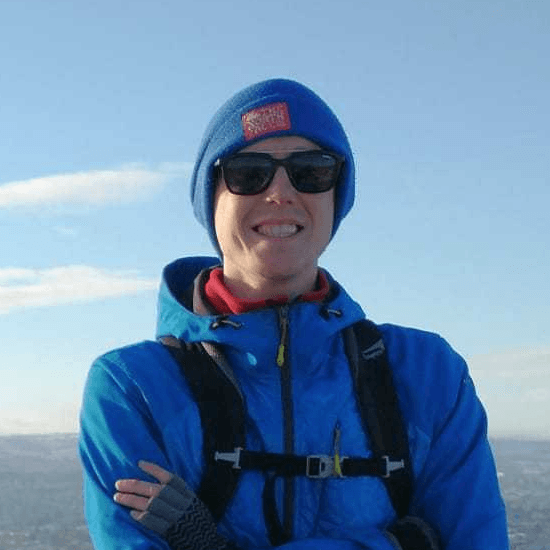
Need help finding flights?
From logistics and how to get there, to fitness, group dynamic and trip difficulty, Rory and his team of friendly experts are on hand to help.
We've got your back
Guaranteed to run
All Much Better Adventures trips are now guaranteed to run. Once you’ve booked your spot you can immediately make your travel arrangements, no uncertainty, no hanging about (excludes 'request to book' departures). Full details
Flexible payments
Secure your spot with the minimum deposit and pay off the remaining balance in as many instalments as you like, with no interest or fees. Full details
Happiness Guarantee
We’re so confident you’ll have an amazing time we’ll put our money on it. Full details
Full financial protection
To give you complete peace of mind Much Better Adventures is backed by ABTOT, ABTA and ATOL memberships. Full details
Tried & Trusted
Much Better Adventures is rated ‘Excellent’ on Trustpilot with over 1000 verified trip reviews averaging 4.8/5.
Connect before you go
You'll be invited to join a WhatsApp group to get to know each other before your big adventure together. Full details
DEPARTURE DATES
